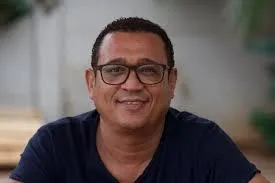Investing in local skills is the heart of conservation and filmmaking in Africa

Noel Kok Co-Founder and Executive Director of NEWF.
Image: Supplied
As we reflect on International Youth Day the question around access to opportunity for young people remains a pressing one. Our mission, as Nature, Environment and Wildlife Filmmakers (NEWF), strikes a chord with this theme in that we know that high level skill is required of young people, before meaningful access to opportunity is afforded to them.
We find ourselves at a key, yet often-overlooked intersection of potential, the fusion of conservation and filmmaking, and the urgent need to invest in local skills to steward both. In other words, our problem is two-fold: we need to tell conservation stories, and we need to tell them in a local and contextually relevant voice.
Too often, stories about African wildlife, environmental change, and indigenous knowledge are captured through lenses far removed from the communities and landscapes they portray. For decades, international narratives about Africa’s biodiversity have dominated global platforms, despite being filmed on African soil and shaped by African realities. It's time to shift that paradigm by equipping African storytellers with the tools, mentorship, and platforms to tell their own stories.
This is the ethos behind the NEWF movement, a thriving ecosystem of emerging African conservation storytellers. At the heart of our approach is a radical and necessary idea: the people closest to the land, the sea, and the cultural memory of place are the most qualified to tell its stories.
Earlier this year, we saw the 8th NEWF Fellows Summit and Congress take place in Durban. The Congress, themed “Africa Refocused, Reimagined, and Rising Together,” became a living testament to what’s possible when you build skills, nurture talent, and foster community. More than 130 fellows came together, not only to hone their craft and pitch their films but to share knowledge, interrogate their identities, and most importantly, to build each other up.
Local skills development in the conservation and filmmaking space is not merely an economic investment. It’s a political act, striving to make a shift. In a global system that often rewards outside expertise over local experience, empowering African storytellers to lead narrative change is a form of resistance. It reclaims agency, honours ancestral knowledge, and gives voice to environmental issues from those living within them, not observing from afar.
The ripple effect of such development is profound. When a Mozambican cinematographer like Carlos Noronha shares the screen with filmmakers from India and Ghana, or when a Kenyan composer like Labdi Ommes scores a film about rhino conservation in South Africa, we’re not just telling better stories, we’re building a collaborative future for the natural history filmmaking industry.
What makes this model so effective is its ecosystem-based approach. Training isn’t a one-off workshop or a handout. It's a sustained relationship built on mentorship, peer learning, and emotional as well as technical growth. Whether it’s through pitching clinics, creative development labs, or cultural storytelling sessions led by icons like Dr. Gcina Mhlope, the NEWF model creates a space where confidence, purpose, and community intersect.
And this is precisely what Youth Month should be about: spotlighting and supporting young Africans who are not waiting for permission to lead. They are visionaries, camera in hand, standing on ancestral ground, capturing what the world so desperately needs to see, through their eyes, in their voices.
As climate change, biodiversity loss, and socio-ecological challenges deepen across the continent, it is critical that conservation efforts are not separated from cultural context. Filmmakers are not just documenting wildlife, they are influencing global understanding, policymaking, and funding priorities. The authenticity and ethical clarity of those stories matter.
That is why local skills development must become core policy, not a side project, across conservation, media, and creative industries. Investment must follow talent, not convenience. Barriers like access to equipment, training, and global networks must be broken down, not reinforced.
Africa has the storytellers. Africa has the scientists. Africa has the land, the sea, the history, and the future. What’s needed now is for institutions, partners, funders, broadcasters, and governments to believe in what’s already growing, and to scale it.
Because ultimately, the survival of our environment, our heritage, and our people depends on how we tell the story, and who gets to tell it.
Noel Kok is the Co-Founder and Executive Director of NEWF
*** The views expressed here do not necessarily represent those of Independent Media or IOL.
BUSINESS REPORT